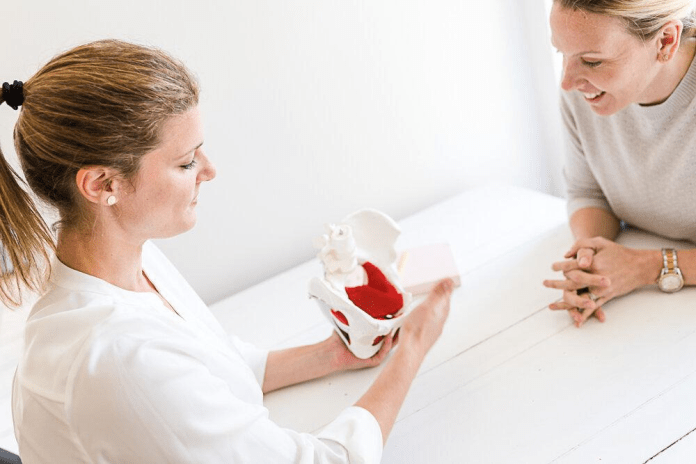Physiotherapy narellan for women’s health is a non-surgical treatment that addresses a variety of issues that affect women’s health. It also offers pregnancy and delivery support.
Women’s health physiotherapists are highly trained healthcare professionals who focus on the specific needs of women. They help manage a wide range of conditions from incontinence and prolapse through to sexual dysfunction, pregnancy-related issues, and more.
The Importance of Patient-Therapist Relationship in Women’s NDIS Physiotherapy Experience
Studies have shown that how women perceive their therapist can significantly impact the quality of their NDIS physiotherapy experience. The patient-therapist relationship is a crucial factor in achieving a superior clinical outcome, along with the therapist’s ability to provide relevant information and explanations of the therapy process. While a large proportion of sampled users reported a positive relationship with their therapist, many complained about the lack of information about treatment procedures and session duration. The findings also suggest that self-management of chronic conditions can be improved through the introduction of appropriate tools, and a multi-disciplinary approach in healthcare has shown many benefits in Africa, where physiotherapy is a key component.
Women’s Health Physiotherapy: Treating Specific Female-Related Issues
Women’s health physiotherapy is a specialized area within physiotherapy that focuses on treating female-specific problems like pelvic floor dysfunction, incontinence, and pregnancy-related issues. Physiotherapists trained in this area use a holistic approach that includes social, mental, and physical aspects to improve their patients’ quality of life and well-being.
During an initial appointment, the physiotherapist will take a detailed history and perform a pelvic floor assessment to determine the patient’s pelvic floor strength. Based on the assessment, the physiotherapist will recommend a plan of treatment that includes resistance and aerobic exercise to increase muscle mass and reduce symptoms.
In addition to treatment, the physiotherapist can also provide advice on lifestyle changes, self-care, and relaxation techniques to prevent the issue from recurring or improving its severity. Kinesiotherapy and electrical stimulation may also be recommended to relieve pain and improve symptoms.

What is women’s health physiotherapy?
Physiotherapy is a broad area of pathology, however some therapists choose to specialize in certain areas or conditions. Women’s Health Physiotherapy is a specific area of physiotherapy that focuses on treatment for bladder, bowel and sexual dysfunction, pelvic pain, concerns leading up to or following urogynaecological surgery and pregnancy.
A specialist in women’s health physiotherapists will have completed additional training to better understand the unique anatomy and hormones of women. They are also familiar with the effects of menopause and childbirth on the body and can treat a variety of conditions that are more common among women than in men.
Your first appointment with a physio for women’s health will include an assessment of your musculoskeletal and obstetric and gynecological history. This will allow your physio to tailor your treatment according to your unique presentation.
A pelvic floor exam may be performed by a physiotherapist to determine the strength and function of your pelvic floor muscles. This can help you understand the root cause of your problem. This can involve a vaginal or rectal internal exam, depending on your needs.
Incontinence and pelvic floor weakness are common issues for women. Incontinence therapy can include advice on fluid monitoring, diet and exercise, as well as bladder training and exercises. The pelvic floor muscle training can also be recommended to strengthen the muscles. An ultrasound scan of the bladder and pelvic floor can also be done.
What can I expect from a women’s physio?
Women’s health physiotherapy is a great option for anyone who is in pain or has symptoms such as pelvic floor dysfunction, urinary leakage, chronic backache, and urinary incontinence. Women’s health physiotherapists are not like regular physios who are trained to treat all ages. They have additional training to address specific issues faced by women.
In a typical appointment, a women’s health physio will ask you about your symptoms and experiences and what you hope to gain from treatment. The physiotherapist will then conduct a thorough examination to gather as much information about you as possible, including your past treatment and history.
The external vaginal exam is the first part of the exam. Your physio may use one or two gloved hands to examine the pelvic floor muscles. This is to look for any signs of prolapse or tender or tight areas.
You can also have a rectal examination, where your physio will use one gloved finger to look at the pelvic floor muscles in the rectum. This may be more comfortable for some people. Your physio will explain why.
In addition, your physio might also have to examine the external genital area for signs of infection and age-related changes. This can be more uncomfortable than usual, but your physio will ensure that you are comfortable and not in any discomfort.
When should you see a physio when pregnant?
Physiotherapists can help with all the changes you go through during pregnancy, from pain relief to preparing your body for birth and recovery after your baby is born.
You can see a physio anytime throughout your pregnancy, but it’s especially beneficial to do so early on. A physiotherapist can help you to ease pain, increase strength and improve mobility.
They can also give advice on how to care for your back and pelvic floor, and offer tips on correct posture.
The pelvic floor muscles change during pregnancy and childbirth, so a physio can show you what exercises are safe to do at this stage. They can teach you how to stretch your perineum properly, and show you ways to manage incontinence after giving birth.
A woman’s health physio can also perform internal exams. They can evaluate abdominal separation, diastasis recti, scar tissue, and other conditions. This is a more comfortable option than an annual pelvic exam. They will also be able to do a deeper examination of the abdomen and pelvis that your GP or midwife.
Pregnancy is the ultimate strain on the body, so working with a physio who can provide proactive strength, flexibility and stabilization can make it less likely that you will develop problems during pregnancy or even postnatally. A physiotherapist can help you reduce pain, strengthen your body, and reduce common problems like incontinence, pelvic pain, and back pain.
Antenatal Physiotherapy
Antenatal physiotherapy, a vital part of women’s physiotherapy, is an essential component to how pregnant women feel about their pregnancy, birth experience, and postpartum.
A physiotherapist can help with many issues during pregnancy, including incontinence, prolapse, scar treatment, breastfeeding problems, and incontinence. Antenatal physiotherapy can ease or prevent these conditions by using techniques such as soft tissue massage and gentle joint mobilization, manual therapy, lymphatic drain, kinesio taping, and other techniques.
Pregnancy is a time when many women experience lower back and pelvic pain due to the weight of their baby. Bend + Mend can help with this by providing hands-on manual therapy, abdominal muscle training and strengthening exercises for the pelvic floor.
Your antenatal physiotherapist will also be able to offer support and advice in the third trimester, helping you prepare for labor. They will also teach relaxation techniques to assist with labour coping strategies.
The physiotherapist can also set you up with a safe exercise routine, which can have a number of benefits for your pregnancy, including reducing the risk of gestational diabetes, high blood pressure and pre-eclampsia; maintaining strong heart, lungs and muscles; helping to keep your baby’s weight healthy; and boosting your psychological well being.
If you would like to book an appointment with a women’s health physiotherapist, contact our team today!

Everything You Need to Know About Women’s Health Physiotherapy: A Comprehensive FAQ Guide
Q1: What is women’s health physiotherapy?
A: Women’s health physiotherapy is a specialized area of physiotherapy that focuses on treating female-related issues such as pelvic floor dysfunction, incontinence, and pregnancy-related problems. Physiotherapists specializing in women’s health have received additional training to understand the unique anatomy and hormones of women and are familiar with the effects of menopause and childbirth on the body.
Q2: What can I expect from a women’s health physiotherapy session?
A: During a women’s health physiotherapy session, the physiotherapist will take a detailed history and conduct a pelvic floor assessment to determine your pelvic floor strength. The physiotherapist will then recommend a plan of treatment and exercise and offer advice on lifestyle changes and self-care techniques. The treatment may also include kinesiotherapy and electrical stimulation to relieve pain and improve symptoms.
Q3: What is included in the first appointment with a women’s health physiotherapist?
A: Your first appointment with a women’s health physiotherapist will include a detailed history, including your obstetrical and gynecological history. A pelvic floor assessment will be performed, which may involve an internal examination (vaginal or rectal). The physiotherapist will then recommend a plan of treatment and exercise.
Q4: What are the common issues treated by women’s health physiotherapy?
A: Women’s health physiotherapy focuses on bladder, bowel and sexual dysfunction, pelvic pain, concerns leading up to or following urogynaecological surgery, and pregnancy. Common issues treated by women’s health physiotherapy include incontinence, pelvic floor weakness, and chronic backache.
Q5: Is a pelvic floor exam uncomfortable?
A: The pelvic floor exam may be uncomfortable for some people. During the external vaginal exam, the physiotherapist may use one or two gloved hands to examine the pelvic floor muscles. The rectal examination involves the use of one gloved finger to look at the pelvic floor muscles in the rectum. Your physiotherapist will ensure that you are comfortable and not in any discomfort.
Q6: When should I see a physiotherapist during pregnancy?
A: It is recommended to see a physiotherapist during pregnancy to address any issues such as pelvic pain, back pain, and preparation for childbirth. Physiotherapy during pregnancy can help maintain strength and flexibility and can prepare the body for delivery. It is best to consult with your healthcare provider to determine the best time to start physiotherapy during pregnancy.





